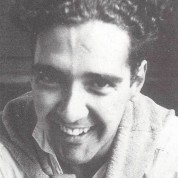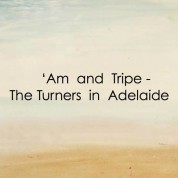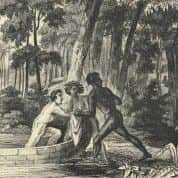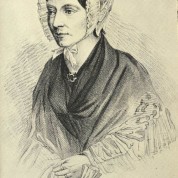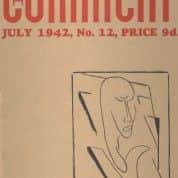with reason, without rhyme: a Max Harris biography
Max Harris was many things to many people: poet, journalist, critic, bookseller, publisher, newspaper columnist, husband, father … and much more. He can be thought of as one of the great catalysts of Australian letters. He sped up the reaction – he made things happen. His footprints are certainly all over the territory covered by this website: Malley, Nolan, Heide and Comment. It was Max to whom Ethel Malley sent her dead brother Ern’s poems; it was Max who in 1945 visited...
Read More‘Am and Tripe: The Turners in Adelaide
‘Am and Tripe coincides with the visit to Adelaide of a major exhibition of Turner paintings from their London home at the Tate Britain. Two Adelaide children enter Turner’s world and there discover new connections between people, places, events and paintings. But beware – some of the discoveries come from the wonderful world of their imagination. It seems appropriate that this story should center on Adelaide where, 70 years ago this October, Max Harris received a letter...
Read MoreEliza’s landfall
Abstract: Both Sidney Nolan and Sunday Reed are associated with Eliza Fraser – he through his paintings, and she through his linking of her and Eliza in the theme of betrayal. The essay Threads and the paper Mrs Fraser: Reconstruction and Deconstruction both examine this relationship. This article provides a more detailed account of Eliza Fraser’s time on Fraser Island and her rescue, and examines in detail the role of the two convicts John Graham and David...
Read MoreThreads
‘I have gathered a posie of other men's flowers and nothing but the thread that binds them is my own.’ Montaigne. This present essay traces the threads that bind the lives of six figures from Australia’s past: Eliza Fraser, David Bracewell and Ludwig Leichhardt in the nineteenth century, and Sunday Reed, Sidney Nolan and Patrick White in the twentieth; who if not all national icons, have nevertheless left their mark in legend, culture, art and literature. They make an unlikely sextet: the earlier trio steeped in adventure, one willingly, the others less so, all treading new paths across a hostile land; the later trio steeped in art and literature, each in their own way also treading new paths across the artistic landscape of that same continent.
Read MoreComment – an overview
Comment is one of two little magazines dedicated solely to avant garde art and literature published in Melbourne during World War 2. The better known of the two is Angry Penguins with nine issues published between October 1940 and June 1946. Comment was published by Comment Publications and edited by Cecily Crozier who was born in Melbourne on 21 July 1911. This website is dedicated to Cecily and went live on the centenary of her birth. Cecily’s father was a mining engineer and worked...
Read MoreCecily Crozier: a centenary portrait
A portrait of Cecily by David Rainey. It is Melbourne, September 1940. The Swans have just thrashed the Tigers to win their fourth premiership flag, and Australia has been at war for a year – a reality biting across a nation that once again has answered the call. Factory bench and office desk alike collect dust as men and women depart for uncertain fates – some to battlefields in the Middle East, in Europe and in Africa; others to local training camps for conscripted...
Read More

